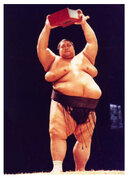I'm starting to feel like Jack Nicholson from A Few Good Men:
You don't want the truth because deep down in places you don't talk about at parties you want me on that wall, you need me on that wall. We use words like honor, code, loyalty. We use then as the backbone of a life trying to defend something. You use them as a punchline. I have neither the time nor the inclination to explain myself to a man who rises and sleeps under the blanket of the very freedom I provide and then questions the manner in which I provide it. I would rather you just said "thank you," and went on your way...
He he.
So:
You starrt off fine, but definitely go overboard on the degree of ability you recommend. A 550 under 10 minutes just ain't gonna happen for many folks, regardless of fitness. Especially for those of us that learned to swim at age 52. I'm happy with a 450 under 10. Multiple 25 yards underwater on 1 minute intervals? Ain't gonna happen for most people.
Its the journey that counts. Congrats on your 450 in ten. The underwaters repeats are with fins on sorry. Again though its the process. Knowing how it feels to be tired and out of air, but finishing anyway.
Why do you assume that the diver was out of shape? All we know really is that he is dead. He may have been a marathon runner and he is still dead. I agree that you should take care of yourself but in the end, you still die...at least that is what historical evidence has suggested.
Please I really though I went out of my way to not make it about a specific incident. Especially somebody who recently died. I don't know the specifics and I am deeply sorry for his friends and family.
I am trying to point out that
all things being equal, one is more likely to survive a mishap if you are in better shape.
Note also part of fitness is health.
In my opinion if you are doing any serious diving you should have a physical once a year, and a stress test every now and then.
What do you base this statement on? In the "VAST MAJORITY" of dive related deaths we can attribute people not being in good shape?
This IS news.
Do you have any statistical data to back this up?
What I said was: Most diver mishaps are a chain of mistakes and equipment failures. And in my opinion, in the vast majority of them better fitness would have helped.
The first sentence is almost a definition. The only ones that aren't go something like, bob jumped in and had a heart attack. Or then the shark eat him. But even those are the result of a chain of mistakes. Going diving where you might be eaten for example.
This is based on study reading and training. But very quickly: Most mishaps involve Panic. This is a mental and pysiological state. Mental state is effected by the state of your body. Hold your breath until its uncomfortable. Then try doing something intricate like some math problems on paper. Not so easy. The state of your body is effected by the state of your mind. What do you think the pulse rate is of somebody with their neck in the noose about to be hanged (hung?). Even if they are not exerting themselves at all. I will guess that somepeople even have a heart attack while they are waiting to be hung. But the noose is what kills them.
Ditto the hypercapnia. If your heart explodes in 30 sec, instead of passing out in 1 min, you have 30 sec less to fix the problem.
I survived a CO2 hit on a rebreather. All of a sudden my breathing went though the roof, and I thought I was going to die. The only reason I survived was I had heard a story of a friends experience. He said "I was breathing so hard and so paniced that it was all I could do to close my mouth piece, and put my bail out reg in my mouth" I grabbed a boulder--I was at about 150' in a quarry. And used all my will power to close my DSV, and stick my bailout reg in my mouth. My bouyance was going to hell, and I then had to battle to vent my drysuit, wing, and rebreather. All the time wondering if this was how I was going to die.
Better fitness means more bullets under extreme stress. Again if my heart had exploded, or if I couldn't keep it together to do the two things I barely managed to do--Get on alternate source of air and grab a rock--I probably wouldn't be here to irritate you today.
Its always better to be smart enough to stay out of trouble, than fit enough to fight your way out.
But like the old western:
They weren't looking for trouble, but trouble came looking for them.
Stay safe.




